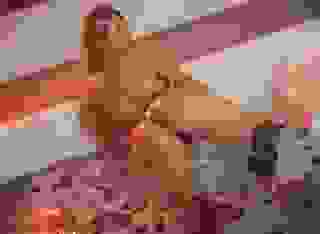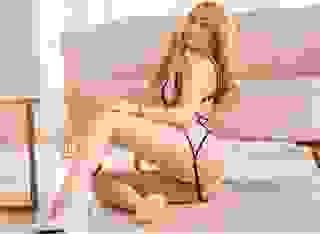Note: You can change font size, font face, and turn on dark mode by clicking the "A" icon tab in the Story Info Box.
You can temporarily switch back to a Classic Literotica® experience during our ongoing public Beta testing. Please consider leaving feedback on issues you experience or suggest improvements.
Click here"Then they're worth fighting? You're defending yourselves?"
"They've never attacked our territory directly," Jackson said. "It's propaganda - a stretch of the truth to get people riled up. It's all like that."
"You need to explain these things," Chaki said. "How can you possibly make war for 14 years, even if you were insane enough to want to do so? You have to get food at some point."
"Our society is specialized," he said. He ran his hand along the building to their right, letting his fingers drift across the stone as they walked. "There are people dedicated to producing food. That's all they do. They're very good at it. That frees everyone else up to do other things. That's the underpinning of our whole society. It's why we can build cities and ask big questions – we're not all running around just trying to scrape together a basic subsistence." Jackson looked back at her. "It's also a weakness. One of our problems is that we're running extremely low on the land we need to grow food. We're exceeding our capacity to support ourselves. It's not the reason for the war – there really isn't just one thing. But it's part of the whole equation."
"What about the G.A.U. and the Bloc?"
"We live in the GAU." Jackson said it so that it rhymed with cow. "The Greater Atlantic Union. Mostly, the West. Our enemies are the Sino-Russian Bloc; mostly the East."
Chaki nodded. "So, the west part of the sprawl against the east part?"
Jackson laughed. "No, Chaki. The west and eastern parts of the entire world."
"But that's so big."
"Yeah," Jackson said. "It is."
They'd walked for about fifteen minutes when they came to a strange structure. It was raised off the ground, shooting up like a giant mushroom supported by concrete. They took stairs to the top of it. It was crowded with people that were filtering in from every direction. In the middle of the platform was a canyon with strips of metal. The metal continued out of the platform and away, almost as if it was a street floating above the ground.
There was scattered conversation. The crowd seemed more diverse, more relaxed; this was a place where people were supposed to be. Back in the thin alleys near Jackson's home, it felt as though she had to whisper, but now she was comfortable speaking normally. "So, what is this place?"
"A T-station. It's where the subway stops to let people on and off. We'll take it three stops down and then walk to my school."
"That's like..." Chaki raised her palms and moved them back and forth. "...a big connected car thingy, right?"
"Basically." There was a noise in the distance. It sounded like a high pitched screech. "It's coming."
And it came. The subway was a monster, a massive segmented worm with eyes like flaming-white sunbeams and a roar like ten bison dying. It was a rusty grey steel, but its outside was a mosaic of clashing paint and strange runes. Wind blasted in its wake, stronger than with the car, whipping the hair of people near the edge of the metal-bar-canyon. She would never stand that close, not for the skins of ten deer and all their meat.
The beast shrieked, groaned, and eventually clammered to a halt. The doors slammed open. Dozens of people exited quickly, purposefully, and even more got on. No one spoke, but it seemed a carefully choreographed process.
Chaki kept herself pressed to Jackson's backside and drew her arms in tight. She didn't want to bump anyone again.
They crammed themselves in. The doors shut behind them, sealing the exit tight. Jackson put a hand on a support beam. As the train jerked to a start, Chaki realized why. She grabbed at his shoulders to steady himself. "Sorry," she whispered.
"It's fine." Jackson caught her eyes. "You doing alright?"
Chaki's eyes went to the doors as the subway shrieked around a corner. Everyone swayed to the left. "Is this thing safe?"
"Safe enough for everyone else."
"I think we have different definitions of the word," Chaki said.
The train swept along the rails, gaining speed. Chaki's hands on Jackson tightened. Something brushed close to her back; Chaki inched up until she was pressed against her guide.
"It's too crowded."
"Just wait until the next stop," Jackson said.
And there was another stop, and then a second. Far fewer people exited than boarded. Jackson explained that they were traveling through a residential area, and that everyone was getting on to go toward "downtown", which was the city center. Chaki could see their progress out the windows that lined the car; so far, nothing much had changed.
By the time the door closed after the second stop, Chaki was forced against Jackson by the press of people alone. She didn't even have to hang on – there wasn't enough space for people to sway. Chaki scanned the seats and the standing people. Many were using what had to be hand-held type computers with flashing and flickering screens. Some wore strange cords out of their ears and bobbed their heads in time to a rhythm Chaki couldn't hear.
There was a hand on her rear. Chaki shifted, trying to send a message. The hand clenched tighter.
Chaki looked back. A man with a trimmed beard and wearing a leather jacket met her eyes. He grinned. Chaki made a snarl and turned away. Disgusting.
The hand was on her again. Chaki whipped around. "Do not do that."
"Oh. Cute when she's angry." Chaki gave the man her best glare, then turned about once more. "Wonder what you look like with that hoodie off."
There was a loud beeping sound. Everyone's head turned for a moment, and then they all went back to what they were doing. Chaki kept looking.
It was the man's hand-computer. He pulled it out of his pocket and answered. "Hello?"
"Hi," Jackson said from right next to Chaki. He was speaking into his own computer. "Is this Marcus Gerrin?"
The man glanced at his screen, then at Jackson, then at his phone. "What the hell?"
"That shit with the F-X last night was pretty cool, huh?"
"How did you get my number?"
Jackson wrapped Chaki with an arm and moved her behind himself. "You really ought to invest in better security."
"What the hell is this?" the man said, louder. A few people looked at them.
Jackson leaned in close and spoke barely loud enough for Chaki to hear. "I have your name, your number, your address, the password to your home computer, and your email. If you touch my fiancé again, I'll upload that video you made to 3-Visor and send your information to the police."
The man's lips curled up. "You're full of shit."
Jackson tapped something on his screen. The man's phone beeped. He flinched, then looked down. Whatever he saw changed his attitude almost immediately. "...fine. I got it."
"That's what I thought you said."
The man shuffled away as far as he could in the packed train car, suddenly tapping through his phone like mad. Chaki curled in under Jackson's arm. He made his small, tight-lipped smile. "What's a fiancé?" she asked.
Jackson cleared his throat slightly. "Well, when you've promised to marry someone, they're your fiancé."
Chaki felt like all the grey in the world was washed away. She leaned up and kissed him on the cheek, then wrapped his arm up with both hands. Jackson made a strong effort of studying the ceiling of the train, but he was still smiling.
"So, what did you do to him, anyway?"
"Just aired his own dirty laundry in front of him."
"How?"
Jackson tilted his computer in his hand. "This." He put it back in his pants pocket. "This is a world of information. You can't see it, but it's there. Everyone's got electronics. Everyone has a phone, a tablet, VO-glasses, Ftaps, a computer, a foldout, something. There are cameras. There's the internet. Everyone has a copy of their life stored in places in the electronic world that they think are safe."
"And you're a thief?" Chaki asked.
"Sometimes," Jackson said. "You can be a lot of things when no one knows what you look like."
"...I don't understand your world, Jackson," Chaki said.
Jackson pointed behind her. "Maybe you need some perspective."
Chaki glanced at the doors, where the man had vacated. She drew in a breath.
Out the windows, she could see a river. The subway was crossing it, traveling at high speed over a bridge that arced across the water. They were almost at its center, and the sky had finally opened up, a massive blue blanket that warmed her insides and made her feel a bit more normal.
On the opposite side of the river was a dream of lights and constructs. There were towers made entirely of glass. Some were straight and square, but others were twisted in strange shapes, aesthetic to the point that she couldn't guess at their function. Even though it was bright out, it all seemed to glow, just a little.
She could see a long strip of green grass and trees lining the river bank; it was teeming with foot traffic. Beyond that were roads leading off into the maze of buildings, all packed with cars. Her eyes widened when she saw some of them in the sky, drifting in a line through the towers. "Jackson, those cars are flying!"
"Yep. They're expensive to maintain, but they can go faster than a helicopter. Some of the faster ones can outpace a VTOL."
Chaki put off asking what heli-somethings and VTOL were until later. She looked back across the river. The shore that they'd come from was softened by the water, but it was strikingly different from downtown – grey and tan stone, undecorated, strictly utilitarian. It was almost as if she was looking at two different cities.
"Amazing."
"Welcome to Boston," Jackson said. "Just be glad you're not wearing VO-glasses. That would fry your brain off."
"What are those?"
"Virtual Overlay Glasses," he said. "Augmented reality. Sort of like how we have our game menus, but in real life. I'll explain another time. It's kinda hacker territory, so I don't use it much. Too...twitchy."
Chaki accepted it with a nod. "Why is one side so different?" she asked.
"Some people have money. Some people don't."
"But..." Chaki frowned. "If one family hunts poorly, don't the others move in with support?"
"The theory is," Jackson said, "that hard work will open up opportunities for you to make money. So, people move up in society based on effort. A meritocracy."
"Meritocracy," Chaki said, testing the word. It felt clunky in her mouth; too many syllables pushed together. "So, everyone with plenty deserves it."
"In theory," Jackson said. "But people who are our leaders – people in positions in power – make sure that they and theirs are taken care of first. Hard work makes a difference, but who you know is more important. The people at the top don't want others to take their place."
Chaki looked at the dull-grey neighborhood, and then the shimmering downtown. "I can see why. But then, it's not a meritocracy at all."
"It used to be better," Jackson said. "But you're right. It isn't."
The train stopped. Jackson guided Chaki through the doors. It felt like walking into a whole new world. The station was clean and well-lit. It was walled with glass, rather than the chipped tan stone. There was an excited babble of conversation.
Two men were standing near the exit. They wore dark blue clothes and had shiny patches on their shoulders. They were holding the same metal sticks she'd seen in the poster. They scanned the crowd from beneath black helmets. "Who are those people?"
"The police," Jackson said. "They enforce our laws."
"Who's in charge of them?"
"The police chief, and then the mayor of the city. And then the governor of the state. Most of them live downtown."
This time, when they descended, it was on a step-ramp that moved. They didn't even have to walk; it just propelled them down. Chaki looked in wonder as the metal steps folded down into the ground and deposited them on a board boulevard. Jackson told her it was called an escalator.
The tiled first floor of the station was sterile-clean. The sidewalks outside were pristine and polished. Chaki followed Jackson through the press of people; there seemed to be some going everywhere. More than one track met where they'd gotten off; it was only logical to connect the pieces of a place this big.
Their clothing suddenly felt out of place. Bright colors and straight lines were the fashion here, rather than the baggy formlessness. Everyone seemed well-groomed; they stood straight, looked forward. The immodesty of the women was greatly reduced, but they were still feminine. Chaki eyed a few of the longer skirts and womanly shirts, wondering if she would have a chance to try any of them out.
"Welcome to Downtown on the Purple Line!"
Chaki recoiled from the tinny voice. Half of a man, seemingly made of metal, was protruding from a plastic booth. It had a sculpted face that shined in the light and palms that were too thick. Sightless eyes stared her down. "Hello there! I'm Aid! Let me know if there's anything you don't know!"
"Jackson, what is that thing?!"
Jackson steadied her from behind. "Relax, woman. It's Aid. Automated Information Desk. A robot."
Chaki stole a glance back at the spidery contraption as it assaulted another passerby with its too-happy tones. The person didn't pay it any attention. "Robot? What does it do?"
"A robot is a complex machine. Most of them imitate people. It's part of a network that can help you find places in Boston if you're new to the city. Summon a cab, bank transactions, stuff like that. Anything that would be helpful to a tourist."
"How is something that disturbing supposed to greet newcomers?"
Jackson just made his little smile and shook his head. "You ain't seen nothing yet."
Chaki let herself be pushed through a strange entrance at the end of the station. Jackson told her it was a turnstile; the bars rotated one way to ensure the orderly flow of people.
Outside, they walked along the greenery of the riverside for a time. Mixed with the pedestrians were more robots – Jackson pointed them out as they passed. Most were obviously mechanical, with piston-arms and wire-hands. They came in a variety of shapes and sizes: some short, some tall; some zipping on wheels, others plodding along with flat-footed gaits.
They passed a black-haired lady in a suit. She was very pretty; Chaki watched her, trying to observe how a woman in this world was supposed to carry herself. She was holding what Chaki had learned was called a briefcase.
"I'm surprised you recognized that robot."
Chaki was confused for a moment, and then she did a double take. "She looks like a person!"
Jackson rubbed his temple. "Look for the barcode."
Chaki saw it – a strip of black and white squares painted near her ear. Lights flashed around it, and there was an empty metal depression underneath. "I don't like these robots."
"I love robots," Jackson said. "The Aid is kinda creepy, in a way. It got the short end of the budget when they redid the subway."
Chaki shook her head, still looking after the robot woman as it walked along the river. "I don't like how it looks so much like a person. It's like...I don't know."
"You get used to it."
Jackson turned away from the river and into a canyon of glass and steel. Before, the buildings were mostly that grey stone - concrete, he called it – but now they seemed almost entirely made of glass and massive display screens that shifted and changed whenever she looked at them. The streets here were packed with cars. People lined up in bushels at the crosswalks, then burst in huge packs when the orange light-box beeped them forward. She felt like she was being carried along by all the energy.
"Jackson," she said, "it seems that this side just has so much. The buildings are huge. Everyone has better clothes. Robots do more of the work. Don't they share at all?"
"I live in free housing," Jackson said. "All our food and clothing is paid for. We have free access to public transport. On top of that, we've got a small minimum income for other things."
"But that hardly seems like anything," Chaki said. "Well, free food for nothing is certainly generous. I mean, just in comparison."
"It's not much," Jackson said. "But you saw the type of people back there. Those guys hanging in front of the shop – none of them had jobs. My mom doesn't have a job. The state would help pay for their education, but they don't bother. Those girls don't care about school; they don't care about moving up in society. That guy that groped you on the train was a drug pusher. In a way, they're sleeping in the bed they made." Jackson sighed. "But for every one of those, there're people that didn't deserve it, that fell through the cracks, that never got a real chance." He gestured along the sidewalks, at the crowds of people. "But there's too many to care about everyone. We're numbers, not people."
"Why doesn't the government make them work in exchange for their payments?" Chaki asked. "Give them something to do, at least - some of the opportunity that they need."
"Two reasons," Jackson said. "What you said does happen - it's called a draft," Jackson said. "There's a war on, you know."
"I don't understand that," Chaki said. "How can all this be happening at the same time as a war? When the Windseekers make war, every man and woman in the tribe bends themselves to the effort."
"That just tells you how many people there are," Jackson said. "The second reason is robots can do whatever jobs people like my mother would be qualified for a lot better. There's a giant skill gap between where they are and where they need to be in order to be competitive and get work."
Chaki huffed. "You have an answer for everything."
"I don't like it either."
"I can't accept the way things are. It simply isn't fair."
"Life isn't fair," Jackson said.
"Why don't you want to change things?" Chaki asked. "You live in the bad part of the city. You know what that's like."
They turned a corner and joined a group waiting to cross a street. Jackson thought for a time, and then he shrugged. "I'm just one person. Society is what it is. For all of human history, some people had more, some people had less. Every time people try to change that, the ones leading the charge end up just as bad as the ones they replaced – or at least, their descendants do."
"That's no reason to give up," Chaki said. "It just means we have to try again."
"To make things fair?"
"Yes."
Jackson raised a skeptical eyebrow. "You've already got a huge problem. Fairness is a subjective quality. One person's fair is another's unfair. There is no perfect society. There's just too many people. I think that's more the fundamental issue. In your tribe, everyone is respected as an individual; you have the time and the focus to care for one another. And you have to – you survive together, or fall together. But there are so many people here. What does it matter if one of them dies?" Jackson raised a hand at her. "I'm not trying to sound cold, I'm just trying to explain it."
The light beeped, and as one, the vehicles crossing and darting through the roads stopped. They started to cross the street. A small army of cars waited right next to them, engines rumbling impatiently. She eyed them with suspicion, half-wondering if one would jump out and attack.
Their own pack of street-crossers met their opposite. A torrent of people was suddenly darting every which way as the groups shifted and churned to pass through one another. Chaki was jostled and pushed, but eventually she caught up with Jackson.
"See?" he said. "Too many people. We've been able to force the earth to hold that many, but humanity isn't empathetic enough to do the same."
"Still," Chaki said as they started off again, "it just seems so sad to give up on people."
"Your tribe isn't really that different, if you think about it."
"What do you mean?"








